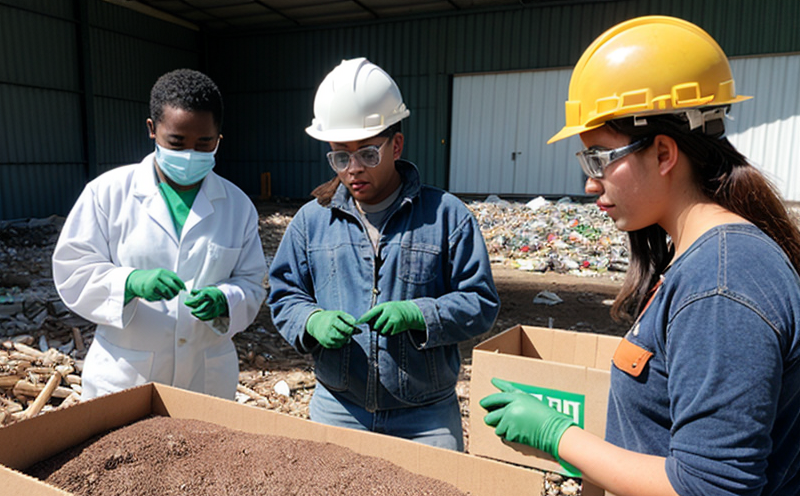ISO 14024 Eco-Label Certification Testing for Toys
The ISO 14024 standard outlines criteria for environmental labeling, which aims to inform consumers and purchasers about the environmental aspects of a product throughout its lifecycle. For toys, this certification ensures that products are not only safe but also environmentally responsible.
Environmental labeling is crucial in today's market as it helps businesses differentiate their products from those without such certifications. This service focuses on providing comprehensive testing to ensure compliance with the ISO 14024 standard for toy manufacturers aiming to obtain eco-label certification.
The process involves a series of tests and evaluations designed to assess various environmental impacts, including energy consumption during production, material sourcing, end-of-life disposal options, and overall lifecycle assessments. The goal is to identify areas where improvements can be made to reduce the environmental footprint of toys.
Our team of experts uses advanced testing methodologies and state-of-the-art equipment to conduct these evaluations. This includes but is not limited to chemical analysis, material composition tests, and lifecycle assessment tools. Each step in this process is critical for ensuring that the final product meets all requirements set forth by ISO 14024.
The importance of sustainability cannot be overstated in toy manufacturing. Toys are frequently used by children, so it's essential to ensure they are safe and do not contain harmful chemicals or materials. By incorporating recycled materials into their designs, manufacturers can significantly reduce waste and promote a more sustainable industry.
Our service also extends beyond just testing; we offer guidance on how to incorporate recycled materials effectively while still maintaining product quality and safety standards. This holistic approach ensures that our clients not only meet regulatory requirements but also contribute positively to environmental conservation efforts.
We understand the complexity involved in navigating through different regulations and guidelines related to toy manufacturing, especially concerning sustainability and recycled material use. Our experienced staff provides detailed reports that outline findings from each test conducted during ISO 14024 certification. These documents serve as valuable resources for continuous improvement within your organization.
Applied Standards
| Standard | Description |
|---|---|
| ISO 14024: Environmental Labeling and Declaration - General Requirements for Environmental Labels | This standard provides guidelines on how to create and apply environmental labels that accurately reflect the environmental impact of a product. It covers all aspects from labeling design to communication strategies. |
| ISO 14025: Environmental Labeling and Declaration - Principles for Developing Environmental Product Declarations | This standard outlines principles and practices for developing environmental product declarations (EPDs), which provide detailed information about the environmental impacts of a specific product. |
Scope and Methodology
| Aspect | Description |
|---|---|
| Material Composition Analysis | We analyze the composition of materials used in toy production to ensure they meet specified environmental criteria. This includes identifying any potentially harmful substances and assessing their recyclability. |
| Lifecycle Assessment (LCA) | Conducting LCA helps us understand the environmental impacts associated with every stage of a toy's lifecycle, from raw material extraction to waste management after disposal. This comprehensive analysis forms part of our evaluation process. |
Environmental and Sustainability Contributions
The ISO 14024 eco-label certification not only ensures that toys are safe for children but also promotes responsible manufacturing practices. By incorporating recycled materials into toy design, manufacturers can significantly reduce their carbon footprint while contributing to global efforts towards waste reduction.
Our testing service plays a vital role in facilitating this transition by providing accurate data and insights needed for making informed decisions regarding material selection and production processes. Through our rigorous evaluation methods, we help businesses identify opportunities for improving environmental performance across various stages of the product lifecycle.
In addition to supporting individual companies, our work contributes positively to broader industry trends towards greater sustainability. As more organizations adopt eco-friendly practices, there will be increased demand for certified products, driving further innovation and change within toy manufacturing sectors globally.





